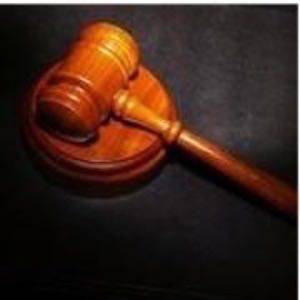Oracle’s lawsuit against Google over alleged infringement of Java slipped from epic battle to soap opera this week: The relationships between the judge, jury, plaintiff and defendant have become a tangle of legal ambiguity and financial suffering — or is it avarice? The jury deferred to the judge on the extent of Oracle’s intellectual property protections. The judge, in turn, wrested from the jury control over the lion’s share of damages, yanking Oracle’s prize another few inches out of reach. With major issues still to be decided, it is becoming clear that Judge William Alsup holds the high cards – and that he has the tech smarts to play them intelligently and mercilessly.

The trial is unfolding in three phases: Copyright, patent and damages. The copyright phase ended last week with the jury convicting Google on one of three counts, namely infringement of nine lines of Java code known as rangeCheck. In a separate issue, the jury couldn’t agree on the question of whether Google’s use of the Java API was a so-called fair use, and thus allowable under copyright law. That question went to the judge, who hasn’t decided yet. His decision could have a big impact on the size of Oracle’s payoff, as we’ll explain in below.
Phase Two, the patent phase, consumed the past several days, focusing on two Oracle patents that Google allegedly violated. The jury was still deliberating at the time of writing. However, one of Oracle’s claims was thoroughly debunked by Google’s lawyers, who showed that Android does not even use the technology in question. Although anything can still happen, it looks unlikely that the jury will accept that claim. The other claim is a closer call.
Oracle Seeks to Cover the Cost of Acquiring Sun
But never mind about whether or not Google is guilty of infringing Oracle’s patents. The big money won’t come from damages for patent infringement, but for copyright infringement. That’s where Oracle has pinned its hopes.
You can’t blame Oracle for kicking and scratching for anything it can get at this point. Oracle spent $7.38 billion to acquire Java creator Sun Microsystems in 2009 with the thought that it could leverage Java to recoup the cost. Taking Google to court (which it did shortly after the acquisition was formally approved in 2010) could recover most of that money. It’s no coincidence that Oracle’s initial damage estimate was in the $6 billion range.
It’s Up to Judge Alsup
Here’s the rub: The fate of Oracle’s prospective payoff now rests entirely with Alsup. When the fair use decision passed to him, with it went control over damages in the copyright phase. If Alsup awards statutory damages, Oracle’s reward would be $150,000. And if the judge rules that Google’s appropriation of the Java API was a fair use, that might be all Oracle gets. On the other hand, if the judge decides against fair use, he still might not award Oracle anything close to the billions of dollars it seeks.
Alsup won’t be hoodwinked. He has proven that he is willing to learn about the technological issues at the heart of the case. And learn he has. This week, he revealed that he has not only learned how to program, but has used the nine lines of rangeCheck code more than a hundred times. He found it simple to do, he says. Will he find an infringement of a mere nine lines, out of the entire corpus of Java, worth $1 billion? Or even $1 million?
Oracle’s desperation hasn’t been lost on Alsup. During the discussion of copyright damages, he called Oracle’s effort to gain significant revenue from Google “a fishing expedition.”
If the developer community agrees, Oracle stands to damage not only its bottom line but also its credibility. Sun created Java to be open source and free. It developed the language more as a steward than as an outright owner. By attempting to copyright the API despite the impact that would have on the entire software ecosystem, Oracle is calling into question the legal nature of computer languages and programming. Its soap opera risks the good will of the developer community at large.









